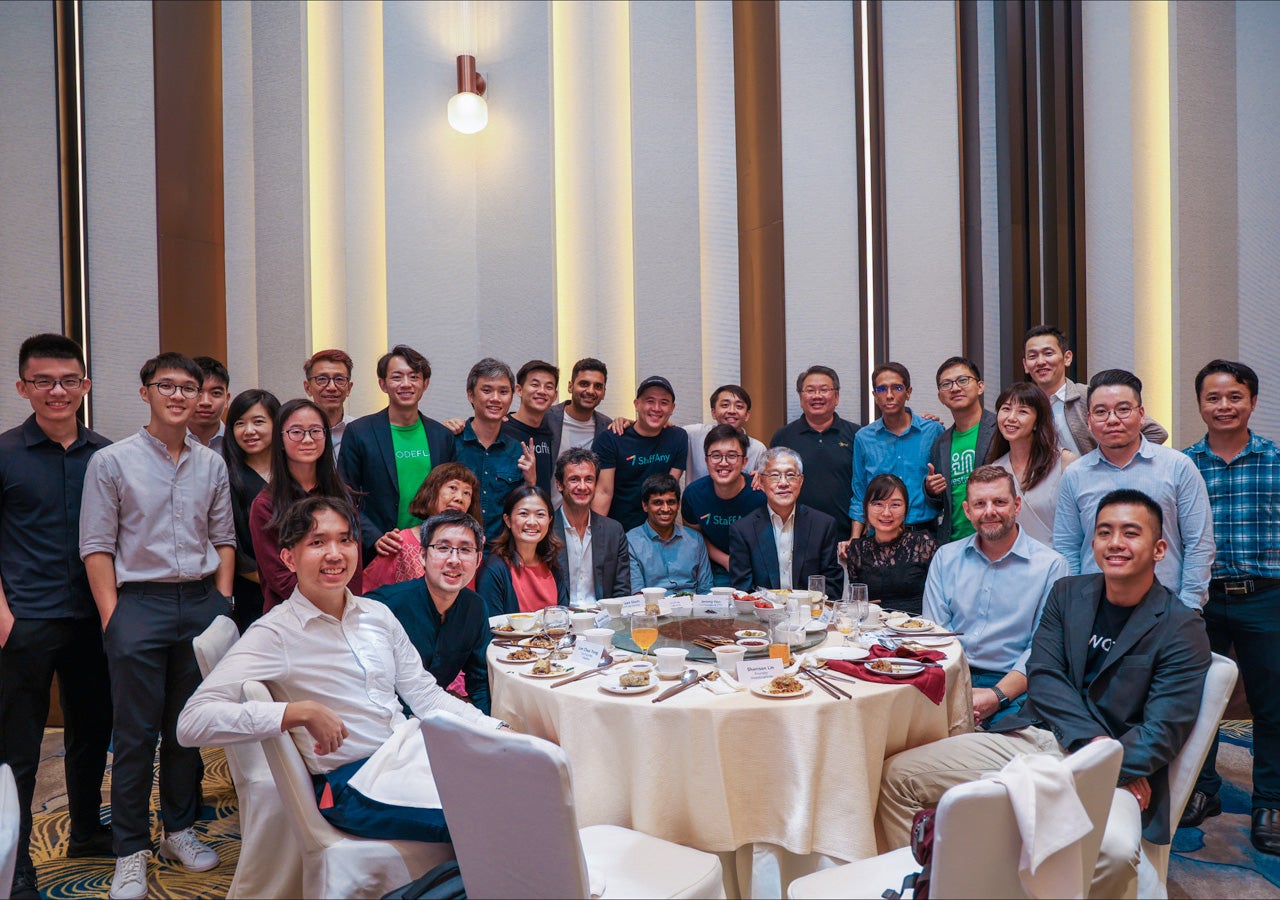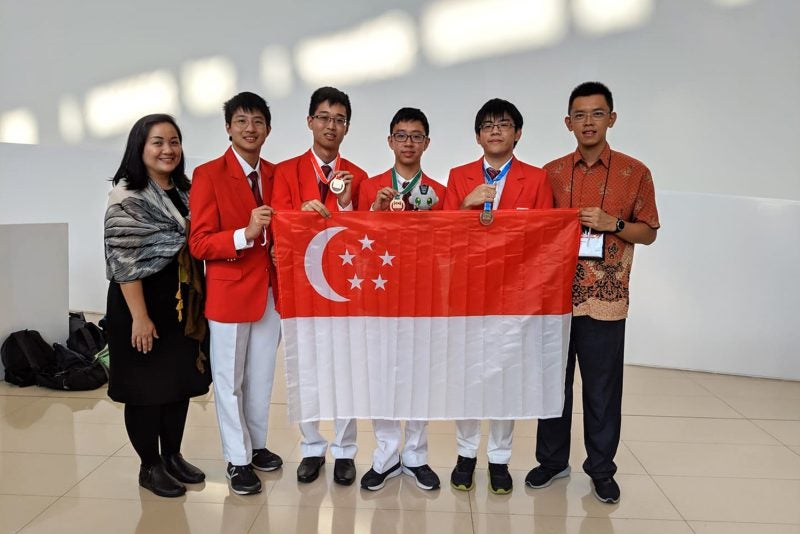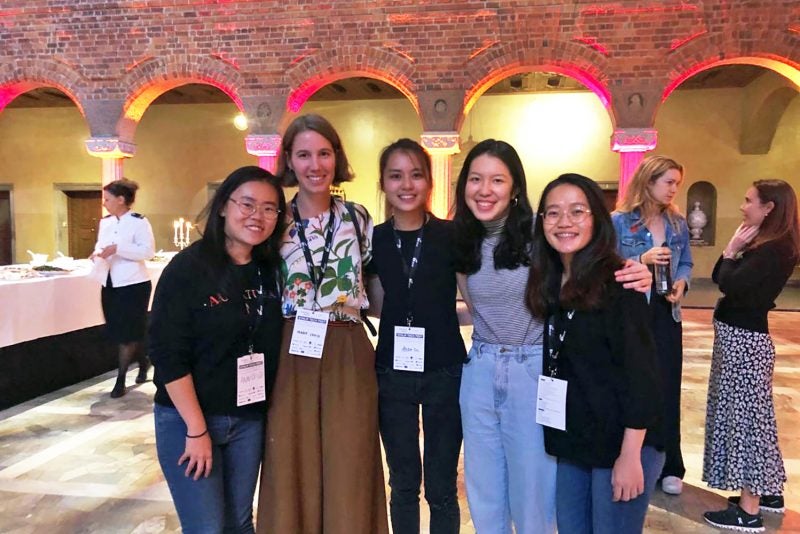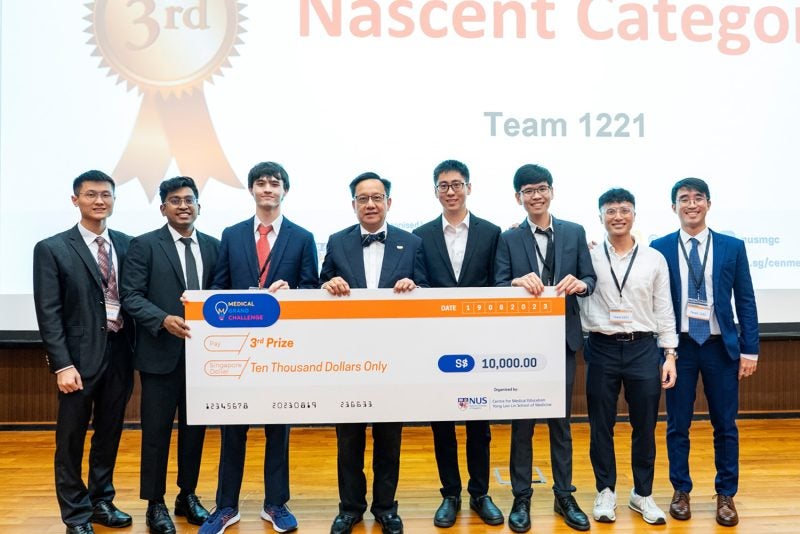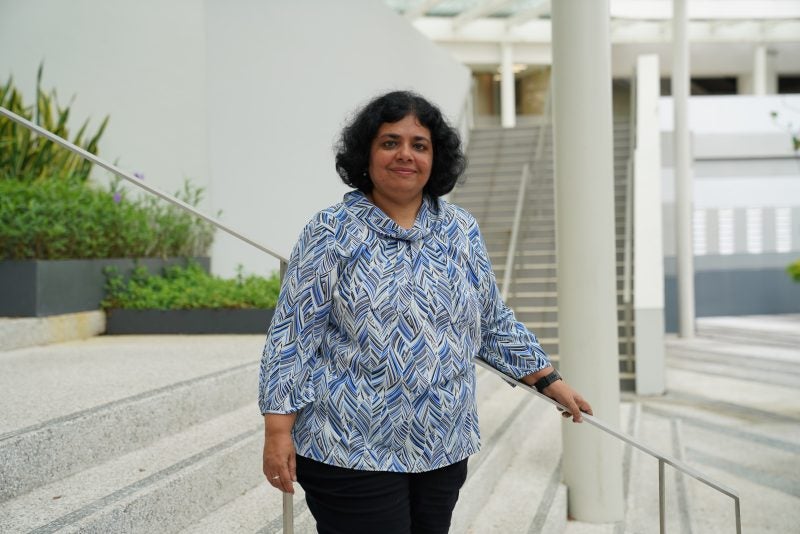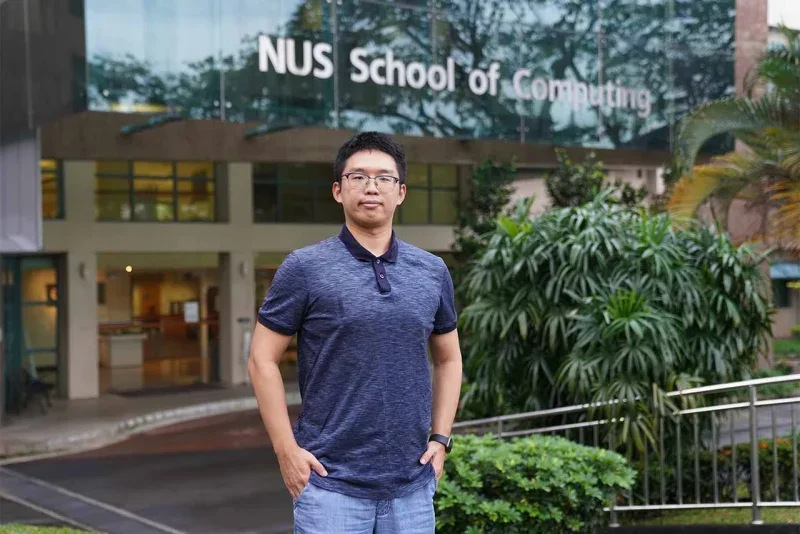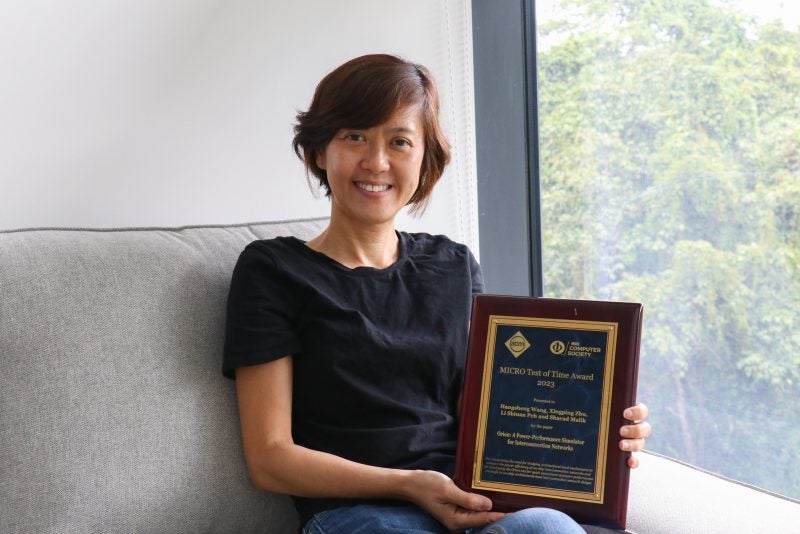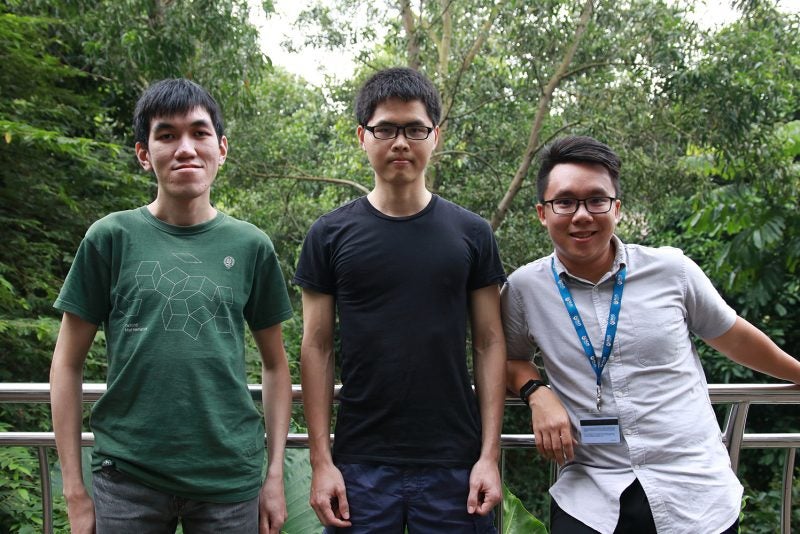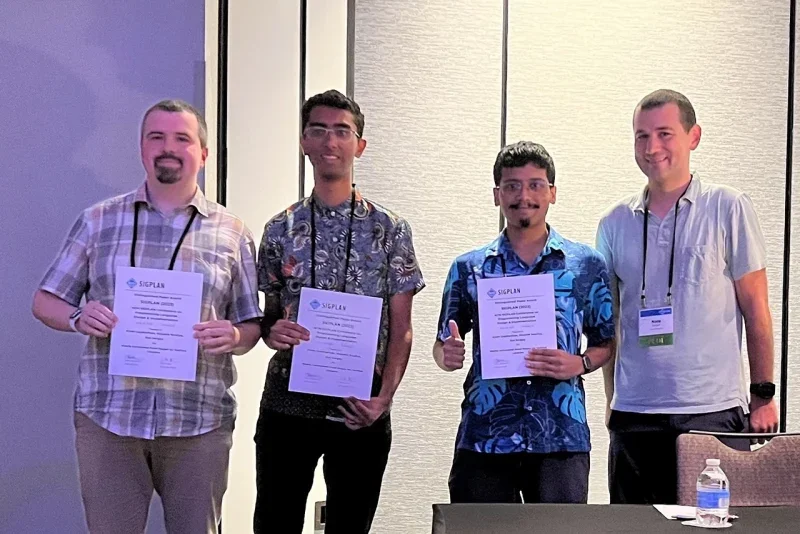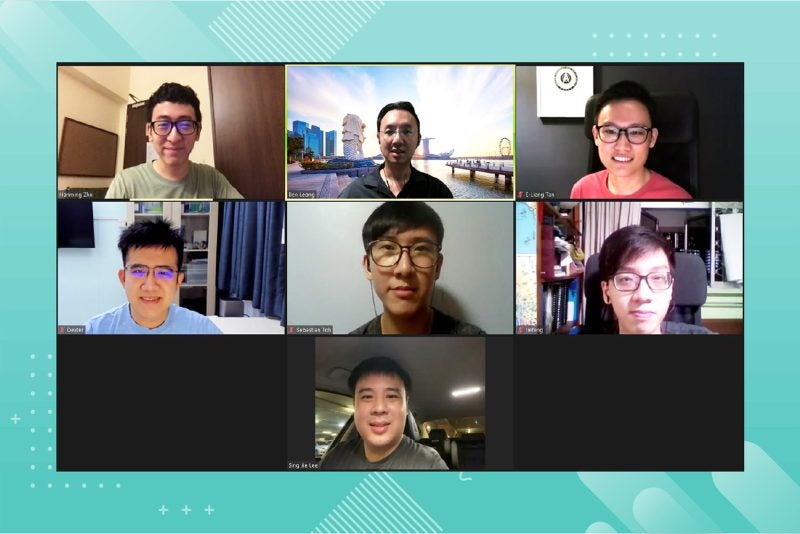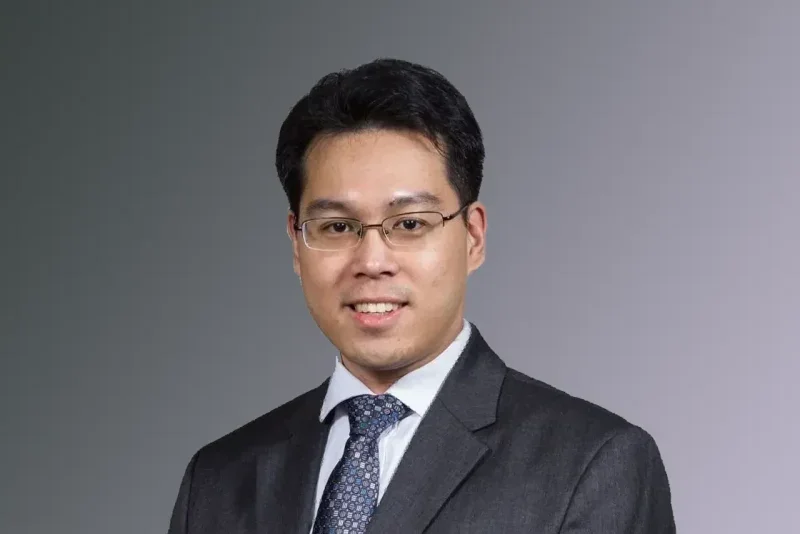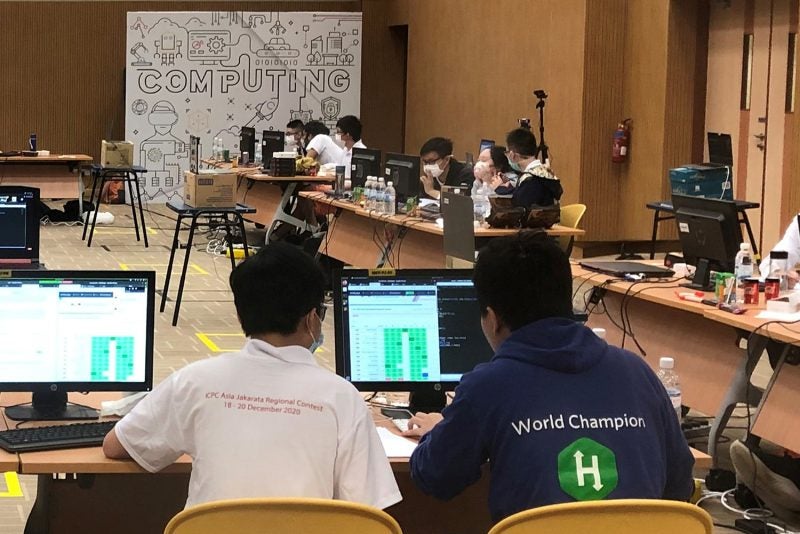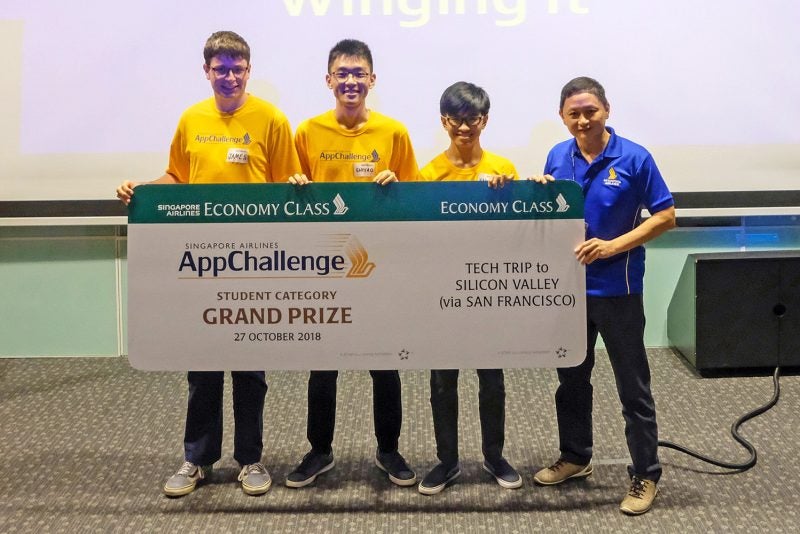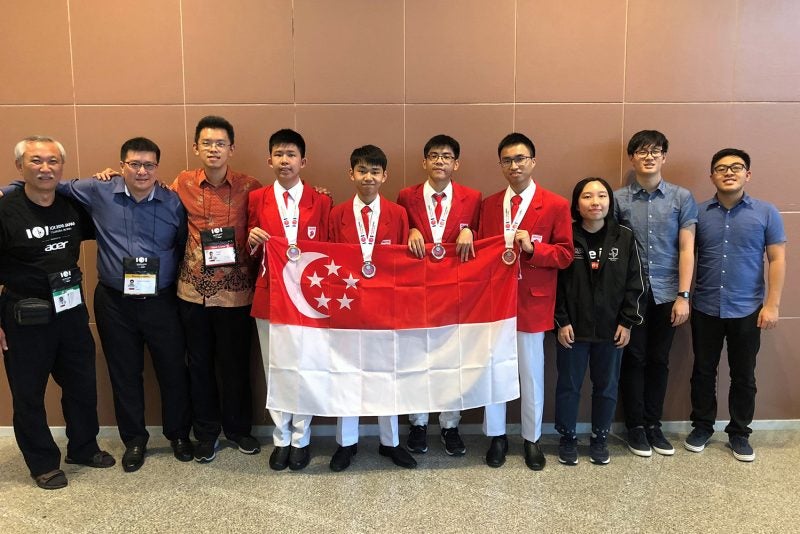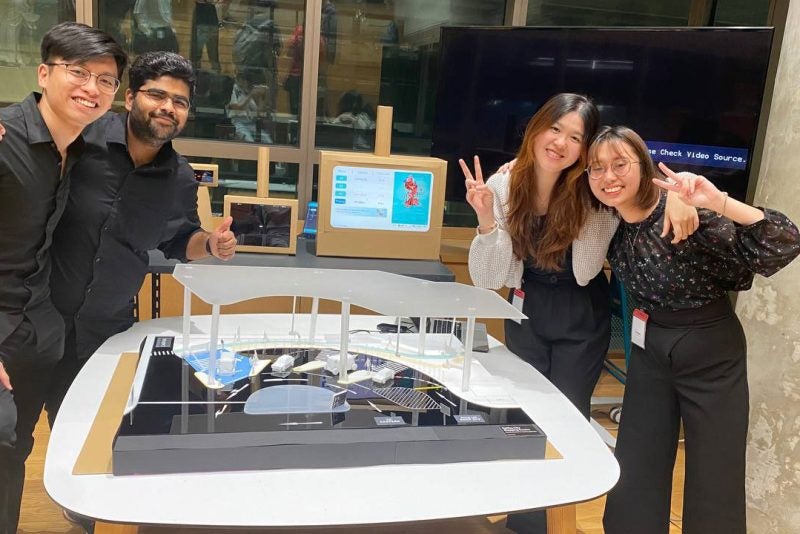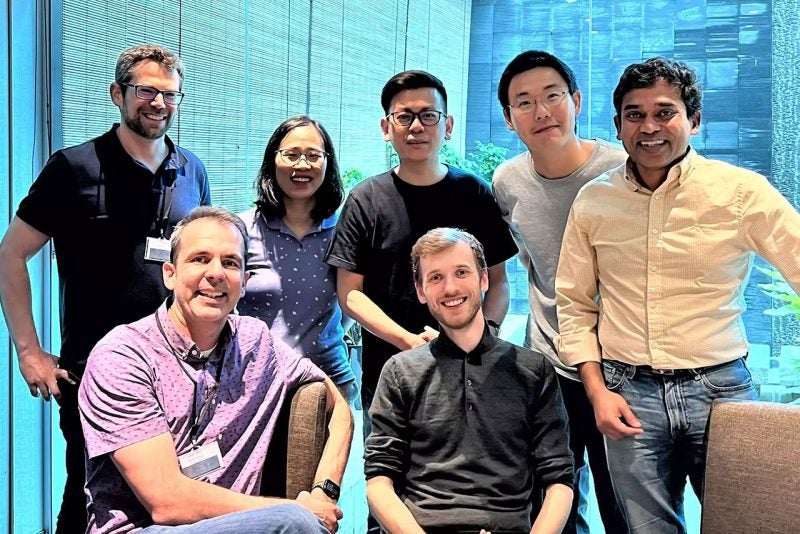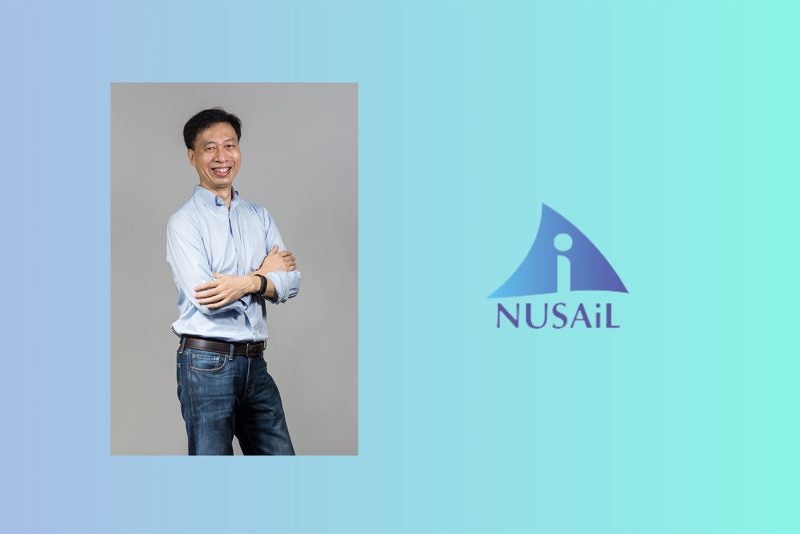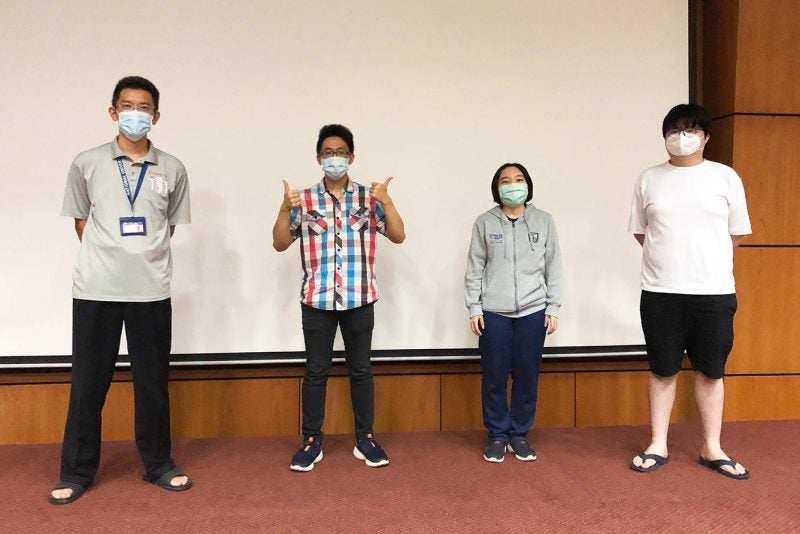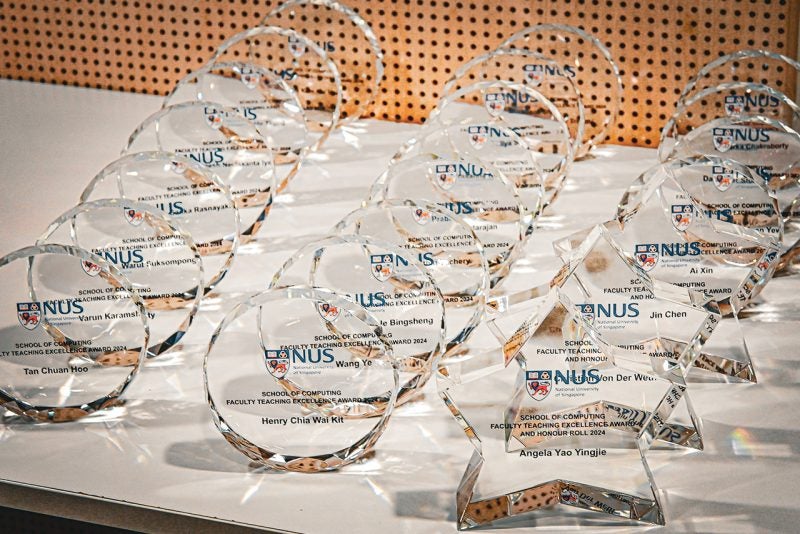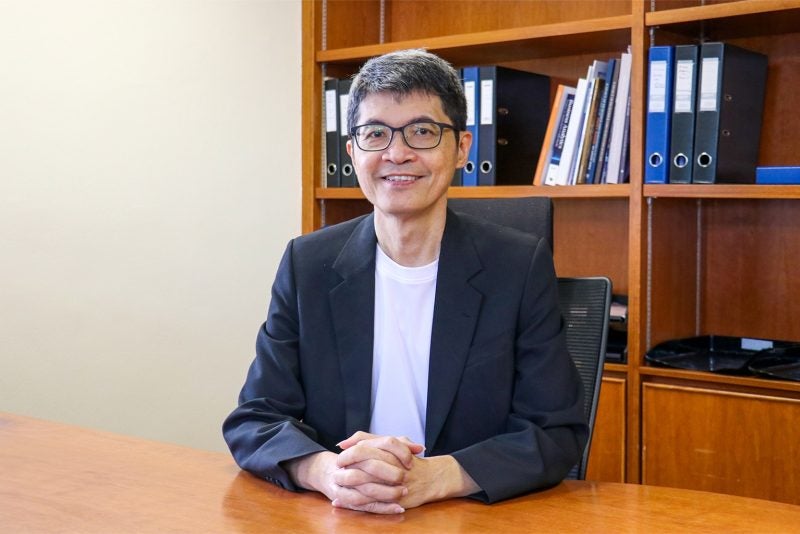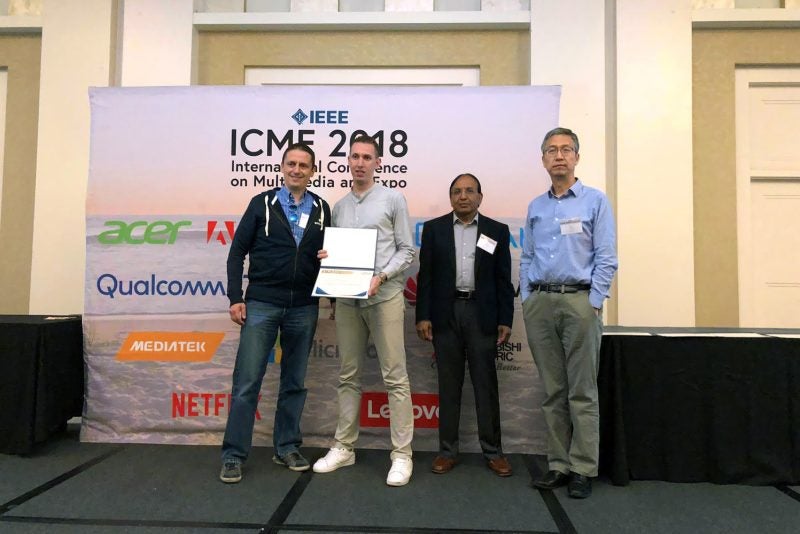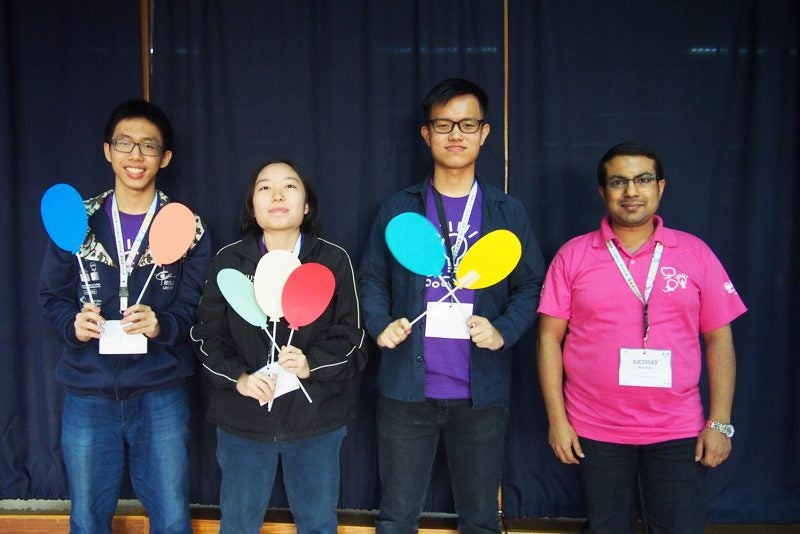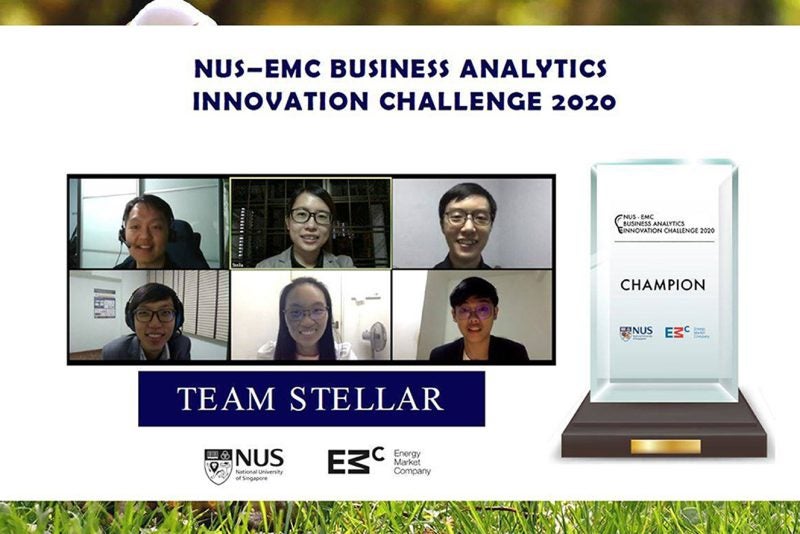Have you ever wanted to start your own company? Perhaps you want to realise your tech startup dream and join the likes of Apple, Paypal, Airbnb or more? Under the Innovation & Entrepreneurship arm at the School of Computing (SoC), there are plenty of opportunities for budding entrepreneurs to get funding, mentorship, network opportunities and a collaborative space to grow their startups.
We spoke to three startup founders who had their startups incubated at Furnace, our very own early-stage incubator.
Sang.bio: A bespoke health plan for health and longevity

Nishanth Sudharsanam’s journey into the world of entrepreneurship began with an internship when he was a Computer Engineering undergraduate. At the suggestion of his senior, he joined Nineo, a startup, as an intern for six months. The exposure he gained left an indelible impression on him, spurring him to venture on his own.
“Over the next few years, I worked on many freelance projects, founded a society, organised a new talent show, and built a talk show blog. With each project where I built something up from scratch, I got hooked on to the thrill of taking ownership of a vision and making it real. I also gained confidence that I could actually do it. After that, entrepreneurship was the only reasonable path forward for me. Anything else would have felt unsatisfying,” he shared.
Together with his friends, they made their entrepreneurial debut with a non-healthtech idea involving QR codes and loyalty programmes in 2011. Nishanth and his team also decided to apply for a spot at Furnace where they can plug themselves into a community and mutually support one another’s dreams. However, they soon realised they lacked the knowledge to execute it. Feedback from mentors at Furnace further affirmed them to pivot their idea. Doctree Asia, his first healthtech startup was then born and later pivoted to Klinify. Nishanth ran Klinify from 2011 to 2019. It was later acquired by Zuellig Pharma in 2019 and he left Klinify in 2021.
While some ideas may sound promising at the start, they may not be viable. Hence, mentor feedback, particularly at the initial stage, is vital for the founders to refine their business model and increase their chance of success. At the same time, mentors should be able to straddle the balance between providing constructive feedback without shooting it down and discouraging the mentees. Nishanth corroborates that the mentors he met at Furnace were able to do just that.
Although he did dabble in other fields as evident in his second startup, Jezer0x.com, his main passion lies in healthtech. It was a no-brainer for him, as he finds it not only meaningful, but also he could get a huge head start after interacting with the people in the medical and healthtech industry for many years.
“Firstly, the only available path is forward. The past cannot be changed.”
Today, he is hard at work on a new venture alongside his co-founders, Krishanthan Surendan and Saif Uddin Mahmud. Sang.bio is the culmination of their dedication and expertise in the healthtech industry. It provides “personalised, research-backed, data-driven and budget-informed” insights for health-conscious individuals to make informed decisions about their health. This includes knowing which tests they should do that are specific to their current state of health, risk appetite, personal motivational model and their propensity to pay for health-span products. They are currently preparing for their launch in January 2024.
Indeed, Nishanth’s entrepreneurial journey has been marked by numerous ups and downs. However, each setback imparts invaluable lessons to him as a startup founder. He leaves us with these insights, “Firstly, the only available path is forward. The past cannot be changed. Secondly, the only failure is to not try anything. Thirdly, focusing on the right problems is more important in the long run than just executing on problems that demand your attention.”
InvestingNote: The Social Network for Stock Enthusiasts
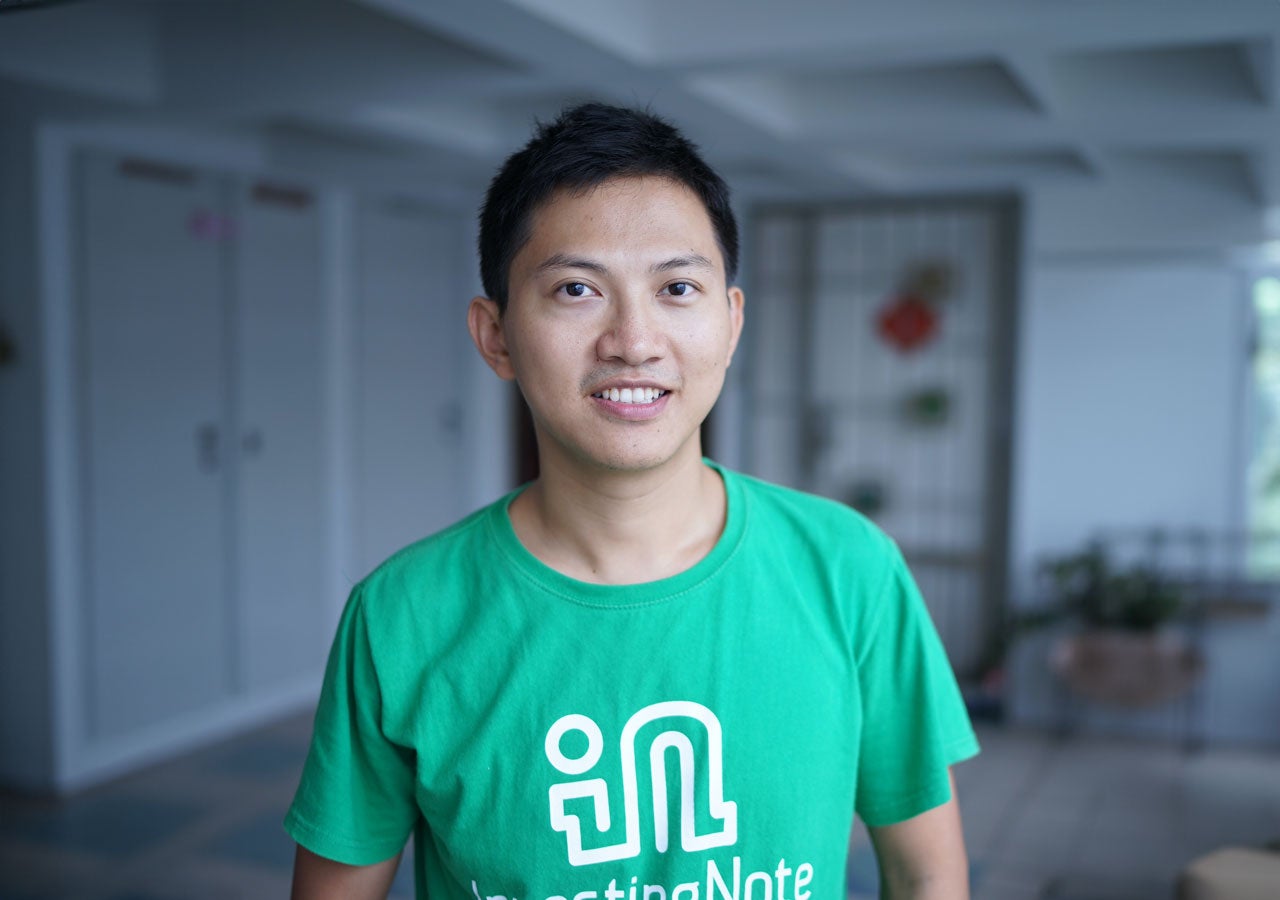
Unlike the other founders, Shanison Lin took a slightly different route. While pursuing his Information Systems degree, he dipped his toes into entrepreneurship with his first venture. Unfortunately, it did not pan out as expected. After graduating from SoC in 2009, he secured a lucrative job as a Tech Lead at ShareInvestor, a subsidiary of Singapore Press Holdings at that time and was even presented with a promotion opportunity. Yet, something felt amiss.
With a leap of faith, he made the risky choice to leave his job and rebuild his entrepreneurial dream with InvestingNote in 2014. InvestingNote is a community-driven platform for investors and traders to share ideas on stocks, personalised finance, news and insights.
“Integrity and responsibility are what I want to emphasise in this community.”
Shanison recalled how he started Investingnote: “Years ago, I observed the stock market discussions happening on various forums. However, I noticed a significant issue with these platforms—the reliability of information and integrity were often questionable. Users could easily delete their posts if their predictions turned out to be incorrect, which undermined trust within the community.
As such, I was determined to explore opportunities to build a community focusing on people wanting to share genuine opinions and information on the stock market. Integrity and responsibility are what I want to emphasise in this community. The bigger plan was to develop a financial ecosystem, bringing retail investors, research analysts and brokers onboard the same space.”
He chose to return to his alma mater and got a spot at Furnace. The mentorship and accessibility of the tech experts at SoC were one of the instrumental pillars that helped him embark on his initial entrepreneurship journey.
Running a startup is often an uphill battle. Six months after InvestingNote was launched, three part-time co-founders left the company due to low traction and difficulties in attaining seed funding. With the guidance of mentors such as Pete Kellock and Francis Yeoh, Shanison persevered as the sole founder and gained valuable business experience. This includes business pitching and refining his business strategy, moulding him into a more effective and confident business leader.
Since then, InvestingNote has accumulated numerous accolades and recognitions. In 2014, it received funding support from the National Research Foundation under its i.JAM Reload micro-funding programme. It was then invested by ShareInvestor in 2015 and most recently, ShareInvestor merged with InvestingNote to form the largest financial media group in the region in January 2023.
Beyond the Singapore and Malaysian shores, Shanison aspires to strengthen their foothold further in Southeast Asia. “In the coming years, we aim to expand our footprint into countries like Thailand. We’re dedicated to providing the tools, community and insights needed for retail investors to make informed investment decisions, grow their portfolios, and achieve their financial goals,” he added.
NodeFlair: Career Transparency Platform for Tech Talents
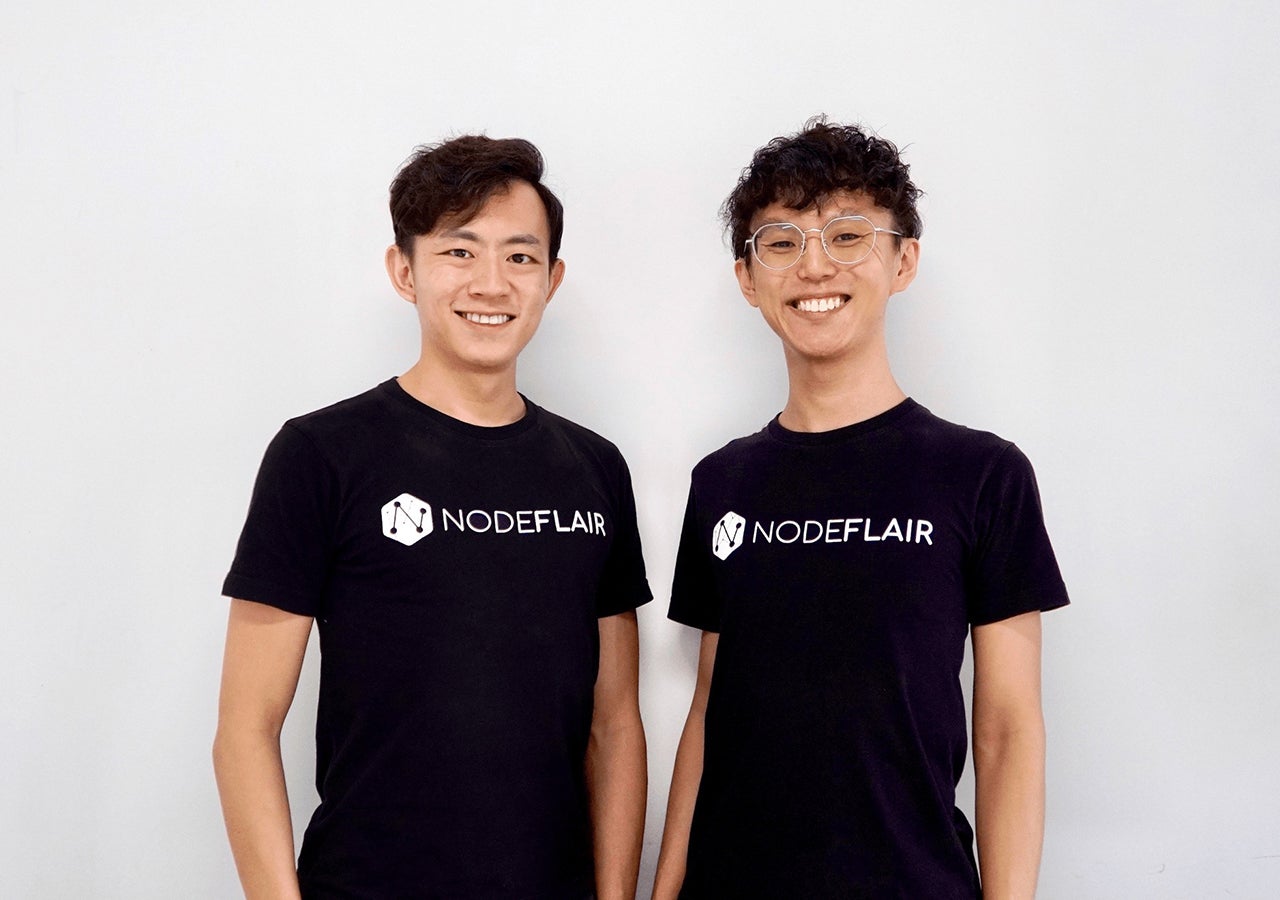
In product design, iterations are our trusty companions. Each failure teaches us what went wrong and we can continuously improve and get better at it. This saga mirrors the startup world where up to 90% of young startups fail but this can provide valuable business lessons to founders as they move on to other projects.
Ethan Ang was a NUS Theoretical and Mathematical Physics undergraduate when he founded his first startup with his friends in 2017. However, due to a lack of execution experience, the venture was not successful.
“It was fun and energetic! Fellow founders are just next door and we could easily help one another out.”
In the same year, he joined ShopBack in the Talent Acquisition (Technology) and Launch team where he helped to recruit tech talents. Equipped with fresh experience, Ethan and fellow co-founder Adrian Goh decided to give it another go and launch his second startup, NodeFlair in 2018.
Although none of them were SoC students, they decided to incubate their startup at Furnace as they wanted to tap into a community of like-minded founders and have a comfortable office space to work alongside.
“It was fun and energetic! Fellow founders are just next door and we could easily help one another out. Even when we work late into the evening, we have fellow founders who are also working hard next door!” he exclaimed.
When they first started, NodeFlair was a vastly different company and focused heavily on recruiting. However, they soon realised a recurring pain point that candidates face: a lack of salary transparency and verified platforms that candidates can rely on for such information. Recruiters were reluctant to openly share the salary range for a role and even if it was available online, no one can actually ascertain if the range was accurate or not.
Armed with a new goal in mind—to revolutionise the way candidates find jobs—they decided to pivot Nodeflair to a job portal where tech talents can be assured of finding verified salary data in 2021.
“We realised that misaligned expectations happen a lot amongst companies and talents due to the lack of transparency during the hiring process. We decided to change that,” elaborated Ethan.
Today, Nodeflair is a career transparency platform with verified career data—salaries, culture, benefits and more for technological roles across all seniority levels. It allows international employers to hire the right people faster by connecting them with highly qualified professionals across Asia. It supports companies from startups to major businesses like Bytedance, Dyson, Shopee and more.
On 6 July 2023, NodeFlair passed another milestone. They successfully secured 2 million in a Series A funding round with participation from firms such as Venture Capital (VC) Iterative, 500 Global and Persol Venture Partners, the corporate venture capital arm of human resource management group PERSOL. The round was also backed by prominent angel investors from companies such as Carousell, Rainforest and AirBnB China. The funding will be used to speed up NodeFlair’s product development, expand into new markets beyond Asia and grow its team. It currently stands at 40 employees across the region.
“We are aiming to be a career platform to serve global companies looking to hire here in Asia where talent density is huge at a competitive rate,” aspired Ethan.

